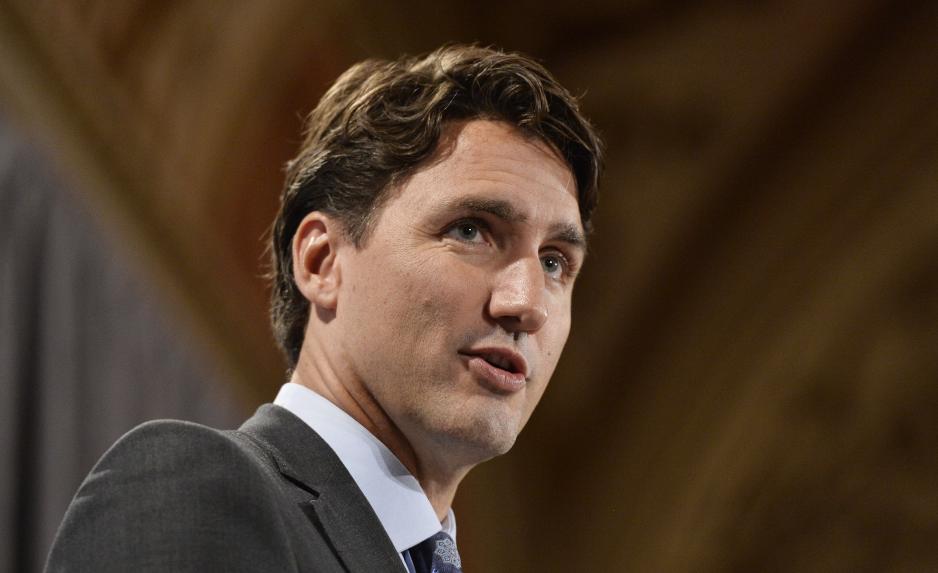Trudeau Commits to Combatting Arctic Climate Change

Prime Minister Trudeau embraces an attendee
At Canada’s First Ministers Conference, Prime Minister Justin Trudeau acknowledges the disproportionate climate vulnerability of the Arctic and commits to bringing renewable, clean energy to the northern territories.
On March 3, Canada’s First Ministers issued a joint communiqué on clean growth and climate change. The statement was made after a meeting of the provincial and territorial premiers and Prime Minister Justin Trudeau in Vancouver, British Columbia last week.
The First Ministers Meeting Commits to Climate
Signed by all ten provinces and three territories, it compels subnational premiers and the national government to action in four areas of climate change over the next six months: "clean technology, innovation, and jobs; carbon pricing mechanisms adapted to each province's and territory's specific circumstances and in particular the realities of Canada's Indigenous peoples and Arctic and sub-Arctic regions; specific mitigation opportunities; and, adaptation and climate resilience.”
The document continues on to note that “Canada’s northern and coastal regions are particularly vulnerable and disproportionately affected by the impacts of climate change.”
The Arctic’s prominent place in the dialogue and subsequent Vancouver Declaration is an important step for recently elected Prime Minister Trudeau in following through on campaign promises to act on climate change and build trust in the national government amongst Canada’s First Nation, Metis, and Inuit communities.
Northern Opposition to a Carbon Tax
The First Ministers Conference held last week kicked off a six-month process of establishing a pan-Canadian framework for combatting climate change.
Conversations in Vancouver focused heavily on the need for a national tax on carbon, something to which the Prime Minister is personally committed. However, on March 2, the premiers of the three northern territories – Yukon, the Northwest Territories, and Nunavut – issued a joint statement in opposition to the use of a carbon tax to fight climate change.
Led by Yukon Premier Darrell Pasloski, Canada’s Arctic leaders “believe a carbon tax would have a negative impact on the quality of life in the North” by placing a burden on economic development and increasing costs of living. By the end of the Conference, the Arctic representatives agreed to look a “regionally appropriate carbon pricing mechanisms” that ensured flexibility for economic growth in the North.
Still, despite their opposition to a national carbon tax, the northern premiers saw a big win in the specific mentions of interests of Arctic special needs of Canada’s Arctic and the people who live there. They are hopeful in pursuing other national climate commitment that bring local benefits to Arctic communities, like renewable energy and green infrastructure.
The High Price of Arctic Energy
In Nunavut, rural communities rely heavily on expensive, carbon-intensive diesel generators for heating and electricity. Nunavut runs on 99.94 percent diesel. While burning diesel adds to global warming, it has even more devastating local effects.
Black carbon - the soot produced from diesel generators - darkens on ice and snow that, in turn, quickens the melting process. It also creates substantial air pollution, which has been linked to health impacts including higher rates of asthma and respiratory issues. Importing diesel also comes with a high financial cost for northern economies and families.
The Government of Nunavut estimates that it spends about one fifth of its annual budget on energy, putting further pressure on already limited resources available for underfunded schools, mental health programs, and overcrowded public housing. Electricity costs in some communities have reached peaks of over 10 times the average Canadian price on a per kilowatt-hour basis.
Wind and solar photovoltaic technology are technically viable and offer reliable, affordable, and resilient energy. The biggest barriers to bringing renewables to Nunavut are capacity gaps, awareness gaps regarding the potential environmental and economic benefits of renewables, and the lack of economies of scale remote nature and small populations in Northern communities.
The Vancouver Declaration commits the national government to “advance efforts to eliminate the dependence on diesel in Indigenous, remote, and Northern communities – and use renewable, clean energy as a replacement.”
Such a commitment might lead to more Arctic climate investment by the national government to replace the aging, polluting generators with clean, affordable renewable energies that run on microgrid technology.
Bringing the Vancouver Document to DC
This week, for the first time in nearly 20 years, the United States will welcome a Canadian leader as the guest of honor at a state dinner.
During his visit to Washington, Prime Minister Trudeau is set to sign a continental climate strategy and discuss bilateral collaboration on cutting emissions through tighter fuel standards, green technology, and social innovations to spur climate-consciousness in daily decision making.
These efforts are essential in targeting reductions in the major greenhouse gas emitting urban built environments of each country. The tentative strategy and bilateral conversation provide opportunities for the Trudeau administration to turn its climate rhetoric into reality, and for President Obama to solidify his climate legacy after the recent Supreme Court decision to stay any action on the Clean Power Plan.
